In his last weeks in office, Mohammad Javad Zarif, who served as foreign minister of the Islamic Republic of Iran from 2013 to 2021, published a six-volume treatise on Iran’s nuclear negotiations with the P5 + 1: the five permanent members of the UN Security Council plus Germany.
Entitled The Sealed Secret, the book carries the subtitle “An Immense Endeavor for Iran’s Rights, Security and Development”. Besides Zarif’s own memoirs, the book also includes contributions and quotations from Ali Akbar Salehi, head of Iran’s Atomic Energy Agency during the pre-JCPOA nuclear talks, former deputy foreign minister Abbas Araghchi and Majid Takht-Ravanchi, a senior nuclear negotiator and Iran’s permanent representative to the UN.
Our second article on Zarif’s book covers his retelling of a scheduled meeting between Obama and Rouhani that never took place.
***
Zarif’s book reveals that shortly after taking office in August 2013, President Rouhani asked Supreme Leader Ayatollah Ali Khamenei for permission to meet with US President Barack Obama during his visit to New York to attend the 68th session of the UN General Assembly, which started on September 24. Unexpectedly, Khamenei agreed.
But according to The Sealed Secret, Rouhani had one highly ambitious condition for meeting the US premier: “Apparently, in conformance with the talks that [Rouhani] had had with the Exalted Supreme Leader before traveling, he stated: ‘I’ll meet with Mr. Obama only if he recognizes Iran’s right to enrich uranium.’”
On a First-Name Basis in the Hallway
Zarif and Iran’s nuclear negotiators had arrived in New York before Rouhani. For the first time since the 1979 Islamic Revolution, the foreign minister and US Secretary of State had sat at the same table and talked – within the framework of the P5+1.
After this meeting, Zarif and his American counterpart John Kerry had met in a hallway next to the Security Council’s chamber and exchanged phone numbers. In his book, Kerry writes that in this meeting they called each other “John” and “Javad”.
According to the first volume of The Sealed Secret: “When the presidential delegation arrived in New York, Mr. Khazaee, the Islamic Republic of Iran’s ambassador to the UN, delivered the American proposal for a meeting between the two presidents, Dr. Rouhani and Mr. Obama.”
Mohammad Khazaee was Iran’s permanent representative to the UN headquarters in New York. He was appointed by Ahmadinejad in 2007 to replace Javad Zarif, who before him had held this position since 2002. The American proposal for the meeting between the two presidents had been delivered to him by Obama’s national security advisor Susan Rice, the US ambassador to the UN until June 2013: “Apparently Mr. Khazaee had had permission to meet and talk to Ms. Rice when she was ambassador to the UN. As a result, the line of communication between them had not been cut off.”
The Sealed Secret goes on to say that Rouhani, having secured Khamenei’s permission, was fully prepared for the meeting with Obama to go ahead. “This demand,” Zarif writes, “and the subject [of a face-to-face meeting] was discussed between Mr. Khazaee and Ms. Rice a few times, until Dr. Rouhani decided to assign Mr. Zamani-Nia to continue these specific talks. The other party assigned Mr. Jake Sullivan to carry on the negotiations.”
Amir Hossein Zamani-Nia was among Hassan Rouhani’s trusted officials. When the latter was serving as secretary of the Supreme National Council and Iran’s senior nuclear negotiator, Zamani-Nia had been a member of the negotiating team. In Rouhani’s government, Zamani-Nia was made deputy oil minister for international and commercial affairs.
Jake Sullivan was then-Vice President Biden’s national security advisor. Later, when Biden assumed the presidency, he would be given the same job as Susan Rice had had under Obama. The title of “advisor” to the president of the United States does not do justice to the great influence this job carries in the White House.
Zarif writes that, after Iran’s demand for recognition of the right to uranium enrichment was put to Obama several times, the US president finally refused. “Right up until the moment Dr. Rouhani left American soil, the other party was not ready to recognize the reality of enrichment,” Zarif writes. “But this was achieved three months later via the interim Geneva agreement, then established in the Joint Comprehensive Plan of Action or JCPOA, and then recognized by the [Security Council’s] Resolution 2231.”
The American decline of a meeting between the two presidents while both were in New York was a seismic moment for Zarif and Kerry too. “When Obama’s refusal to accept enrichment was communicated to the Dr. Rouhani’s representative,” Zarif says, “and when Dr. Zamani-Nia opposed the meeting as well, the American side also expressed its deep concern about the cancellation of the meeting and called it counterproductive.”
Two years before The Sealed Secret was published, Rouhani himself had indirectly talked about this exchange in a public speech after his last visit to New York, to attend the 74th session of the UN General Assembly in 2019.
When plans for a face-to-face discussion fell apart, the United States then proposed Rouhani and Obama have a phone call instead: “After a few meetings between the two delegations, the Americans called again and said that Obama was interested in a phone conversation. This time Dr. Rouhani accepted [unconditionally] and Mr. Khazaee’s phone number was passed on to them so they could communicate via that number.”
Before this, Zarif says, a number of Rouhani’s associates were planning to propose the P5+1 talks raised to the level of heads of state, to make it possible for Obama and Rouhani to meet that way. “Considering that almost all the P5+1 heads of state had either not come to New York or had already left before this proposal was put forward, people around Dr. Rouhani had [then] suggested that the foreign ministers represent the [absent] heads of state in the meeting.”
According to The Sealed Secret, this proposal was made without Zarif’s knowledge at the time, and without coordinating with Rouhani. Preliminary contact was held about it between the two sides, but the Iranian nuclear negotiating team believed it would undermine their work and strongly opposed it.
Meeting by Phone
Obama and Rouhani spoke with each other for the first time on the afternoon of September 27, 2013, Rouhani via Mohammad Khazaee’s mobile phone. “They rang our ambassador’s number just as I was about to leave the hotel, and we talked for a few minutes,” Rouhani would later say about this historic moment. No matter how long the conversation was, it quickly made headlines in the international media.
In his book, Zarif offers up a few more details about the discussion: “The two sides emphasized their political will for finding a quick solution to Iran’s nuclear issue, and laid the groundwork for solving other disputes and cooperation in regional issues. In conclusion, Obama expressed his regrets about the heavy traffic in New York during the General Assembly, and Rouhani wished his American counterpart a happy afternoon.”
After Rouhani’s return from New York, Ayatollah Khamenei changed tack, using a meeting with military commanders to publicly criticize him for the delegation’s contact with Obama. “The phone conversation between the two presidents,” he said, “[and] the long meeting between the two [foreign] ministers, was “not appropriate in our view.”
The Sealed Secret also discloses that on October 8, 2013, the hardliner newspaper Kayhan carried a headline it attributed to Zarif: “Calling Obama and the meeting between Zarif and Kerry was inappropriate.” Zarif writes that he was shocked on seeing the headline – so much so that his back was almost paralyzed, a condition he had to live with for a few months.
It would take Hassan Rouhani six years to publicly defend himself against Khamenei’s criticism. “If our Foreign Minister had not met with the American Secretary of State in New York ,” he said, “and if I had not answered Obama’s call, this [nuclear agreement and lifting of sanctions] would have taken place with difficulty, and very slowly.”
Related Coverage:
Zarif's New Book Lifts Lid on Iran's Nuclear Strife
Zarif's Farewell Letter to Parliament Reveals Obstacles Blocking a JCPOA Return
Zarif Apologizes After Khamenei Reprimands Him in Telling Speech
Revolutionary Guards Raid President and Foreign Minister's Offices
48 Hours of Tumult: The Aftermath of Zarif's Interview
Zarif Blames Russia and the Guards for Harming the JCPOA in Leaked Interview
Zarif vs. the Guards: A New Round
IranWire Exclusive: Javad Zarif is "Frustrated" With the Guards and the Government
visit the accountability section
In this section of Iran Wire, you can contact the officials and launch your campaign for various problems




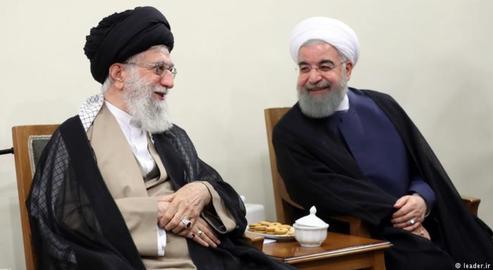
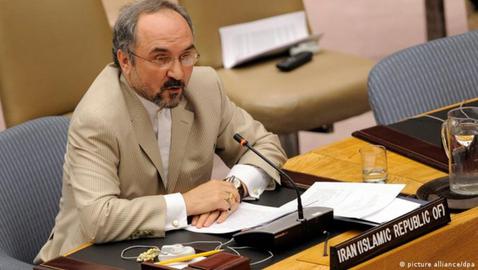
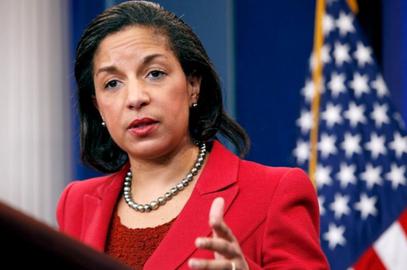
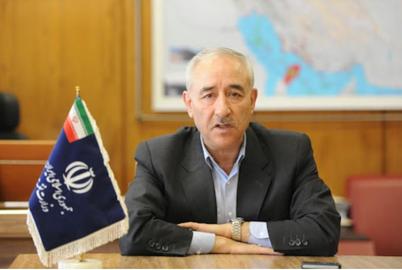
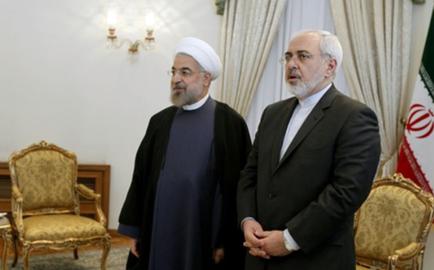
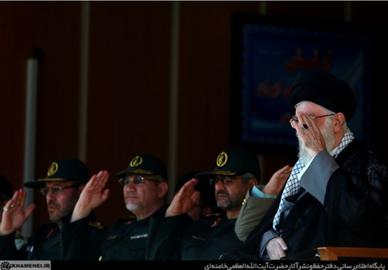
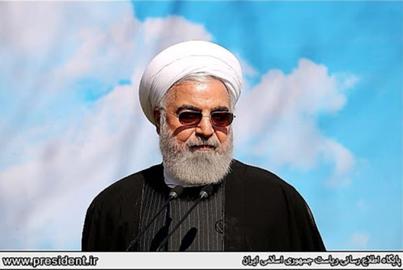



















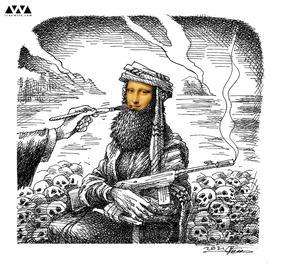
comments